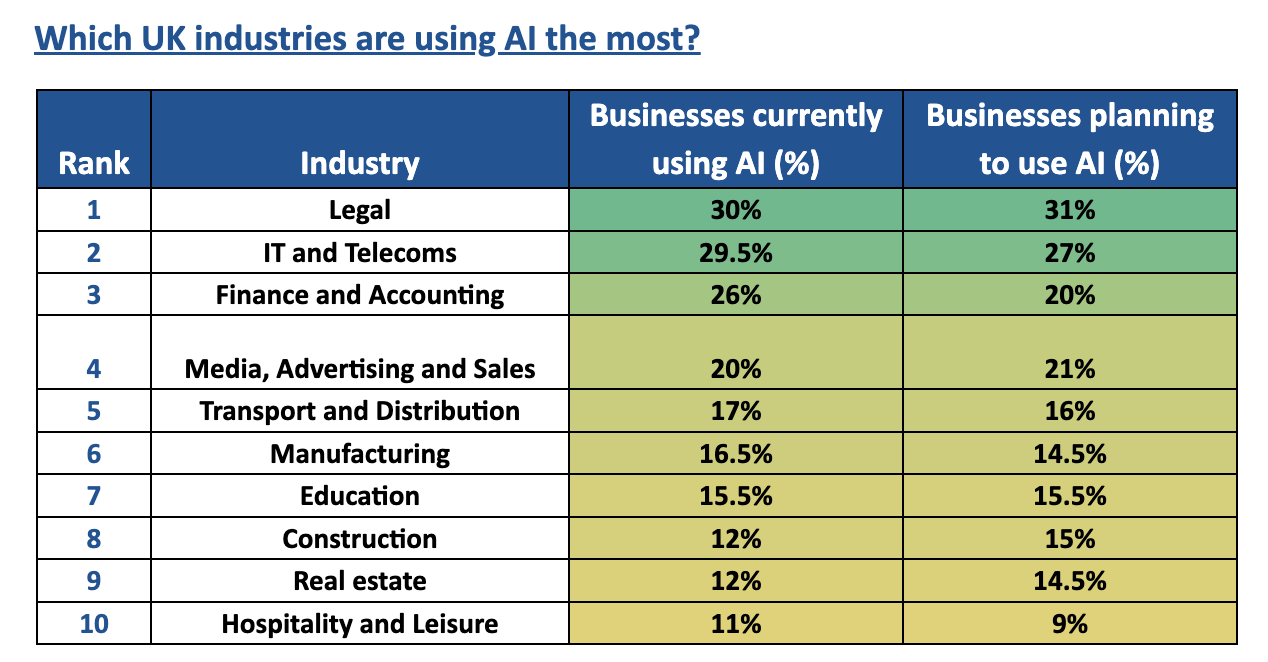Comments
- No comments found

Artificial intelligence (AI) is rapidly transforming numerous industries across the UK.
It offers businesses unprecedented opportunities to optimize operations, improve customer experiences, and enhance decision-making. From legal services and finance to IT and telecoms, AI is becoming an essential tool in streamlining workflows and driving innovation.
With growing adoption comes an increasing dependence on AI, raising concerns about potential risks. As businesses integrate AI into their core operations, many are unprepared to manage the security and ethical challenges that come with it.
This growing reliance on AI sparks important discussions about its long-term impact and the need for caution in balancing its benefits with potential vulnerabilities.
77% of global businesses are pursuing the use of artificial intelligence. Despite global adoption, a staggering 91% of organisations admit they are not ready to manage risks posed by AI.
Application security SaaS company Indusface, gathered insights into UK businesses to determine the sectors most at risk of AI dependence.
Adding to the findings, Venky Sundar, Founder and President of Indusface, shares his insight around the dangers of relying too much on AI in the business world.

*Figures according to Forbes Advisor 2024 AI Report
These industries are reaping significant benefits from AI, but as reliance grows, so do the risks.
The legal sector is one of the most prominent industries using AI, with the industry revolutionising legal research, analysis, and due diligence, but is the sector moving too fast?
According to the survey, almost a third (30%) of law businesses across the UK state they have already adopted AI, enhancing the quality of their legal services.
IT and telecoms rank in second with 29.5% of UK businesses in this sector having adopted the use of AI.
The benefits of artificial intelligence (AI) are vast and transformative, reshaping industries and enhancing business operations across the globe.
AI enables automation of repetitive tasks, allowing employees to focus on more strategic and creative work, leading to increased productivity and efficiency. It enhances decision-making processes through advanced data analysis and predictive modeling, offering insights that were previously unattainable. In sectors like healthcare, AI improves diagnostics and personalized treatments, while in finance, it strengthens fraud detection and risk management. AI-powered tools also boost customer service through chatbots and personalized experiences, creating more responsive and tailored interactions.
As AI continues to evolve, it holds the potential to drive innovation, reduce operational costs, and unlock new growth opportunities across various fields.
AI also plays a pivotal role in the finance and accounting sector, with more than a quarter (26%) of UK businesses in this field already utilising AI for tasks in the workplace.
The finance sector uses artificial intelligence for fraud detection, credit risk assessment, financial reporting, tax preparation and customer service. Could AI's role in financial services introduce new vulnerabilities?
It’s clear to see that using AI in business offers numerous benefits, however, these sectors could be at risk of AI dependence, with almost six in ten (59%) Brits admitting they are concerned about the use of artificial intelligence, according to Forbes Advisor research.
Venky Sundar, Founder and President of Indusface shares his insight on the risks of using AI in business:
“Any sectors powered by tech as a key element of their business, from farming to finance are at risk of relying too much on AI
“Anything data heavy, requiring analytics to stay relevant (consumer engagement and insights in ecomm and retail, credit and risk rating, and consumer understanding will see faster adoption of AI than other sectors)
“The risk though is that POC (proof of concept) should just be used for that purpose. If you go to market with the POC, there could be serious consequences around application security and data privacy. AI could give you code that is vulnerable to attacks, as secure coding practices are rarely followed, and you can bet that most code that AI has been trained on would be vulnerable to attacks.
“The other risk is with just using LLMs (large language models) as an input interface for the products. So far, the inputs that you could provide the software with were very limited, as form fields such as text boxes or drop down lists controlled most inputs into the software. But using AI to read and interpret a prompt could actually remove this predictability. This can lead to serious consequences and early risks of these “prompt injections” are being captured by OWASP (the Open Worldwide Application Security Project).
“Whilst AI can help businesses conceptualise and build code, AI should still be used as a sidekick, not a dependent, especially for software development.
“Before companies go to market, we would still recommend following the same best practices of 1) vulnerability scanning 2) penetration testing 3) patching and 4) WAAP implementations to thwart attacks.”
“Since LLM injections are a threat, the knowledge base used to build productivity use cases, and the knowledge base used to build defence use cases on what’s not acceptable have to be separate sources that need to be trained and updated continuously.
“There needs to be oversight from human beings, and the people maintaining these datasets have to be diverse so that the data sets are diverse enough.”
Leave your comments
Post comment as a guest